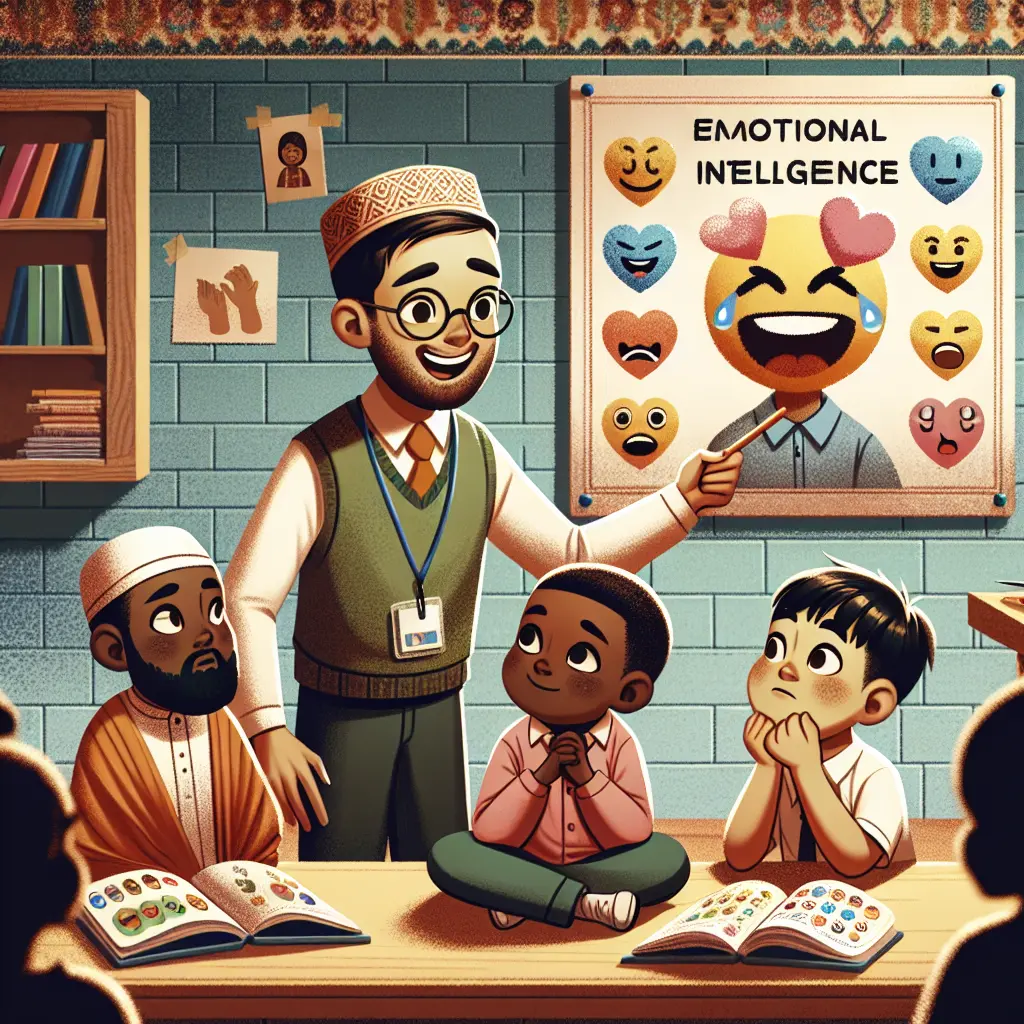
In today's fast-paced world, fostering emotional intelligence in children is crucial for their development and future success. As parents and educators strive to equip young minds with the tools needed for navigating complex social landscapes, the focus on emotional intelligence for kids is gaining momentum. Emotional intelligence goes beyond recognizing feelings; it encompasses a broad range of skills that help manage emotions, develop empathy, and enhance social interactions.
Understanding Emotional Intelligence for Kids
Emotional intelligence for kids includes key skills such as self-awareness, self-regulation, motivation, empathy, and social skills. These skills lay the groundwork for emotional development and maturity. As society becomes more complex, equipping children with these abilities is vital to help them handle emotional and social challenges effectively.
Recent discussions around mental health among younger generations highlight the importance of emotional intelligence strategies. For example, the struggles of Gen Z with ADHD emphasize the need for tailored strategies that help children manage their conditions effectively.
Practical Emotional Intelligence Activities for Children
Developing emotional intelligence in kids is not an overnight task. It requires intentional activities that promote understanding and management of emotions. Here are some actionable strategies:
Role-Playing Games: These activities help children navigate social scenarios, teaching empathy and effective communication.
Mindfulness Exercises: Encouraging mindfulness in children aids in self-regulation and increases self-awareness.
Storytelling Sessions: Using stories to illustrate emotional intelligence can be highly effective. Stories from different cultures or generations, like those of Harry J's remarkable life, offer lessons in empathy and perseverance.
The Benefits of Emotional Intelligence for Children
The benefits of emotional intelligence for children are extensive. Children with high emotional intelligence often form stronger relationships and perform better academically. Moreover, these skills enhance resilience, preparing them to face future challenges confidently.
Recent research shows that emotionally intelligent children adapt better to adversities such as economic challenges — for example, the rising cost of living faced by families in Lagos. By understanding and managing their emotions, children can better cope with environmental changes.
How to Improve Emotional Intelligence in Children: Parenting Tips
Parents play a crucial role in nurturing emotional intelligence in kids. Here are some parenting tips:
Model Emotional Intelligence: Demonstrate how to handle emotions to teach valuable lessons.
Open Communication: Encourage children to express feelings openly and discuss them constructively.
Provide Supportive Feedback: Offer positive reinforcement when children successfully manage emotions or show empathy.
Create Learning Opportunities: Use daily interactions as teaching moments for emotional development.
Implementing Emotional Intelligence Education for Children
Educational institutions also play a role in fostering emotional intelligence in children. For instance, California's recent initiative to support teachers and students highlights the importance of creating environments where children feel secure and valued. A supportive school environment is crucial for emotional growth.
Building Emotional Intelligence in Children: A Community Effort
Fostering emotional intelligence is a communal endeavor involving parents, educators, and the community. Community events like Monster Day encourage participation and collaboration among children, reinforcing lessons of empathy and social engagement.
Discussions on societal issues such as the preservation of indigenous languages can teach empathy and cultural awareness, helping children appreciate diversity and understand cultural identity's impact.
Challenges and Opportunities Ahead
While developing emotional intelligence in kids presents challenges, it offers opportunities for meaningful growth. As society grapples with mental health issues and cultural preservation, fostering emotional intelligence becomes even more critical.
By embracing diverse approaches — from structured activities to community involvement — we ensure a comprehensive nurturing process that prepares children for academic success and compassionate leadership.
Conclusion: Embracing Emotional Intelligence for a Brighter Future
Fostering emotional intelligence is essential in today's world, equipping children with skills to handle both social and personal challenges effectively. Emotional intelligence enhances interpersonal relationships, resilience, academic success, and overall well-being.
Parents and educators are vital in nurturing these skills through modeling behavior, open communication, supportive feedback, and creating learning opportunities. Schools can cultivate supportive environments that value emotional growth.
Community efforts significantly contribute by promoting collaboration and empathy through events and discussions on societal issues like language preservation.
Although challenging, this journey offers opportunities for growth by preparing children to become compassionate leaders. By investing in emotional intelligence education, we build a foundation for a more understanding and resilient future generation.
Reflect on your experiences with emotional intelligence. How have they shaped your interactions or parenting strategies? Share your thoughts or insights in the comments below. Let's continue this important conversation and take actionable steps toward nurturing emotional intelligence in our communities.
Warm regards,
Alice Warner